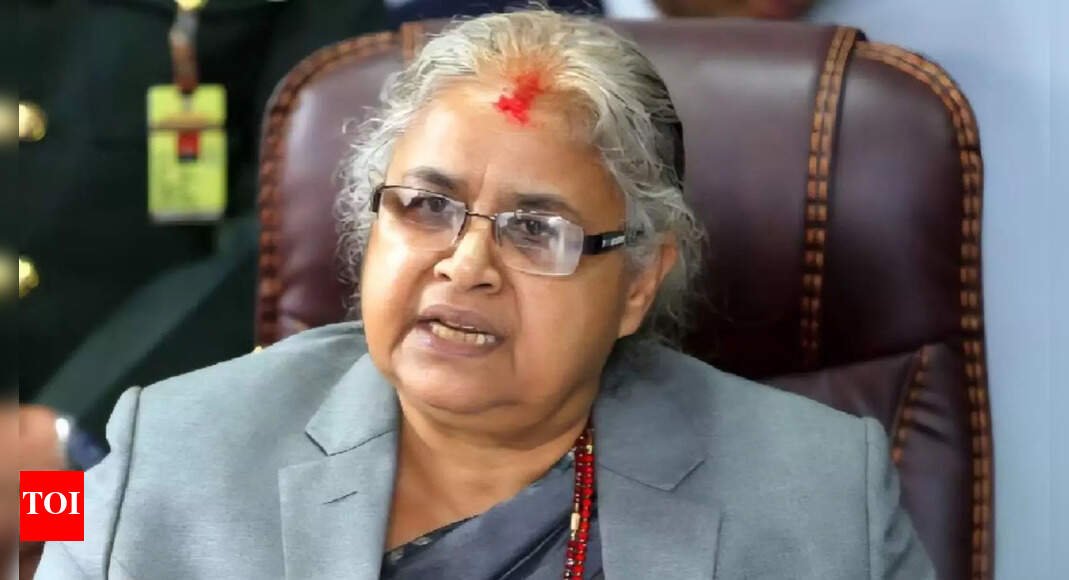It began with a phone call. “I thought it was a prank,” Indian novelist Megha Majumdar said, still stunned. “I thought someone from the publisher was messing with me.” As it turned out, it was not a prank. It was Oprah Winfrey, calling to say, A Guardian and a Thief, had been chosen for her book club.
Majumdar’s second novel, A Guardian and a Thief, is now Oprah’s 119th Book Club pick, catapulting the Indian-born author once again into literary limelight. The announcement came with the kind of high-octane praise only Oprah can deliver: “This woman can write.”
Oprah called the book “exquisitely written” and “gut-wrenching.” Members of the book club called it “haunting,” “unyielding,” and “shooketh.”
A city collapsing, a story on fire
A Guardian and a Thief, unfolds in a city gasping under climate catastrophe, involving chronic floods, famine, and heat so relentless it bends the rules of daily life. Set in a near-future Kolkata, one of the world’s most populous cities, reimagined here on the edge of collapse, battered by heat, hunger, and rising waters. It is a future some might call dystopian, but for Majumdar, it is personal. “I was reading about climate change and thinking,” she said, “What will love and hope look like during crisis?”
One sentence lingers in particular, “Hope was no shy bloom, but a blood-maddened creature.”
The novel centers on two families on opposite ends of survival. Ma, a mother of a toddler and daughter of an aging poet, is preparing to flee to Michigan, where her husband waits. Their visas are secured. Escape is within reach, until Ma’s purse, containing their documents, is stolen.
The thief is one Boomba, a desperate 20-year-old from the city’s outskirts, trying to feed his family and erase a past mistake. His theft sets off a chain of events that will bind him to Ma in ways neither expects.
Story continues below this ad
In conversation with Oprah, Majumdar spoke candidly about what it means to love in a failing system. “What is good for me is not always good for my neighbor,” she said. “Our love can be vicious for somebody else.”
The novel spans just one week. But it pulses with urgency, emotional weight, and piercing moral questions that linger far beyond its 224 pages.
 In a world where survival is paramount, Megha Majumdar asks: who is the guardian, and who is the thief? (Source: Instagram/@megha.maj)
In a world where survival is paramount, Megha Majumdar asks: who is the guardian, and who is the thief? (Source: Instagram/@megha.maj)
What would you do to survive?
Majumdar does not write heroes. She writes humans. At the heart of A Guardian and a Thief is a question that refuses easy answers: how far would you go to save your family if everything was falling apart?
Boomba kidnaps a child for access to food. Ma lies to her husband about their safety. Dadu, a grandfather and former idealist, steals from another child. No one comes out clean.
Story continues below this ad
“The world we live in pushes us into conflict between what’s good for our family and what’s good for others,” Majumdar said during her Oprah interview. “Our love can become harmful to someone else.”
That contradiction, between love and harm, is the novel’s fuel and what makes it feel terrifyingly real.
A writer born of two Worlds
Majumdar grew up in Kolkata in the 1990s, during India’s turbulent transition from socialist economy to liberalised capitalism. “Class was visible everywhere,” she says. “On the way to school, I’d see children my age washing dishes on the street.”
Her awareness of inequity has never left her work. But neither has her hope. At 19, Majumdar left India for Harvard on a scholarship, chasing a freer kind of education. That journey, which she described on Oprah’s stage as “an arrival from outside the context of my life,” now echoes through her fiction.
Story continues below this ad
She stayed in the US, later earning a graduate degree at Johns Hopkins and working as an editor at Catapult. Then came her debut, A Burning (2020), a political thriller of three intertwined lives in modern India, became a New York Times bestseller, National Book Award longlister.Writers such as Yaa Gyasi and James Wood hailed her voice as “urgent” and “extraordinarily direct.”
With her second novel, Majumdar goes leaner, darker, and even deeper.
Hunger, not just as metaphor
Majumdar uses the smallest details to collapse the distance between reader and character. An orange stolen from a child. The cloudy rinse from a bowl of rice. A girl too young to understand she’s being used as a meal ticket. And then there is hunger. Not just physical, but moral. Characters hunger for safety, respect, forgiveness. The problem is, there’s not enough to go around.
“I started writing this thinking about how my family bonds through food,” Majumdar said. “Then I imagined what happens when that food disappears. What happens to love, to community, to your sense of self when you’re forced to eat insect protein or nothing at all?”
Climate fiction is often painted in broad, dystopian strokes. However, Majumdar zooms in. A Guardian and a Thief is climate fiction with a beating heart. The disasters are political, social, and personal.
Story continues below this ad
The ending that shocks
Much has been said about the novel’s ending. Readers gasped. Oprah teared up. Majumdar herself said it felt “inevitable.” “Sometimes hope doesn’t look like a flower,” Majumdar says. “Sometimes it’s fanged and mad.”
At 36, Megha Majumdar stands at the rare intersection of critical acclaim, commercial power, and moral seriousness. She writes novels people read in a weekend, and talk about for weeks.




